Immersing herself in the wild beauty of Scotland’s west coast has added drama to this award-winning painter’s element landscapes. She tells JENNY WHITE how she creates her large-scale works

From the crash and spray of the ocean to the glassy calm of a rock pool, Beth Robertson Fiddes is a masterful painter of water, her expansive paintings vividly evoking its freeform movement and the play of light through its depths.
Built up in mixed media layers, these works spring from hours spent walking and sketching on Scotland’s wild west coast, but the final pieces are completed in her studio. This is not the romantically windswept cabin you might expect, but rather a large industrial unit at the rear of a Chinese restaurant in Ullapool.
The artist needs the space. Her paintings are usually five or six feet wide; their scale is a key ingredient in the way she communicates her experience of the outdoors. “It’s about getting across an idea of scale and a sense of solitude and your place in the world,” she explains.
These are preoccupations that go back to childhood. Beth grew up on the Scottish island of Tiree; the first house she lived in was right on the shore and some of her earliest memories are of sitting on the harbour wall or playing in rock pools. “Water has always been a fascination,” she says. “When I lived inland it was things like waterfalls that fascinated me – the way the light changes as it passes through them. My place to be is by the water, and there is water in almost all the work I do.”
Beth’s parents, both artists, loved taking their children to art galleries. She particularly remembers a trip to see an exhibition of JMW Turner’s work: “I remember how vibrant the colours were. I recognised they were emphasised, but you really do get that kind of vibrancy in the landscape, the sea and the sky. I wouldn’t say I try to emulate him, but I do remember him having an impact.”
هذه القصة مأخوذة من طبعة July 2019 من Artists & Illustrators.
ابدأ النسخة التجريبية المجانية من Magzter GOLD لمدة 7 أيام للوصول إلى آلاف القصص المتميزة المنسقة وأكثر من 9,000 مجلة وصحيفة.
بالفعل مشترك ? تسجيل الدخول
هذه القصة مأخوذة من طبعة July 2019 من Artists & Illustrators.
ابدأ النسخة التجريبية المجانية من Magzter GOLD لمدة 7 أيام للوصول إلى آلاف القصص المتميزة المنسقة وأكثر من 9,000 مجلة وصحيفة.
بالفعل مشترك? تسجيل الدخول

Still life IN 3 HOURS
Former BP Portrait Award runner-up FELICIA FORTE guides you through a simple, structured approach to painting alla prima that tackles dark, average and light colours in turn
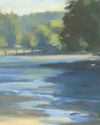
Movement in composition
Through an analysis of three masterworks, landscape painter and noted author MITCHELL ALBALA shows how you can animate landscape composition with movement
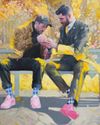
Shane Berkery
The Irish-Japanese artist talks to REBECCA BRADBURY about the innovative concepts and original colour combinations he brings to his figurative oil paintings from his Dublin garden studio
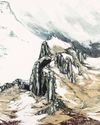
The Working Artist
Something old, something new... Our columnist LAURA BOSWELL has expert advice for balancing fresh ideas with completing half-finished work
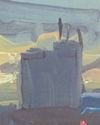
Washes AND GLAZES
Art Academy’s ROB PEPPER introduces an in-depth guide to incorporating various techniques into your next masterpiece. Artwork by STAN MILLER, CHRIS ROBINSON and MICHELE ILLING
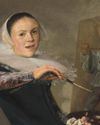
Hands
LAURA SMITH continues her new four-part series, which encourages you to draw elements of old master paintings, and this month’s focus is on capturing hands
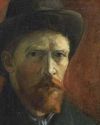
Vincent van Gogh
To celebrate The Courtauld’s forthcoming landmark display of the troubled Dutch master’s self-portraits, STEVE PILL looks at the stories behind 10 of the most dramatic works on display
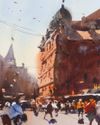
BRING THE drama
Join international watercolour maestro ALVARO CASTAGNET in London’s West End to paint a dramatic street scene
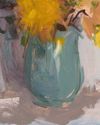
Serena Rowe
The Scottish painter tells STEVE PILL why time is precious, why emotional responses to colour are useful, and how she finds focus every day with the help of her studio wall
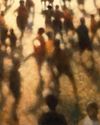
Bill Jacklin
Chatting over Zoom as he recovers from appendicitis, the Royal Academician tells STEVE PILL about classic scrapes in New York and his recent experiments with illustration